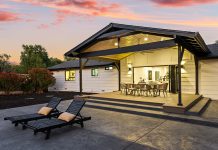Our shared disdain for PG&E turning the lights out on us while we were running from the threat of the Kincade wildfire is not the only thing that should be uniting us right now. This time there was no loss of life. This time we “only” lost 141 homes in Sonoma County, nothing close to the 5,600 torched by the Tubbs fire in 2017. But this time the economic impact in evacuation costs, days of lost work, a week of lost business revenues, canceled trips to our Wine Country and possibly the permanent closure of some local businesses is much more widespread.
Up to 200,000 Sonoma County residents incurred days of evacuation expenses they will never recoup. Above that, 2 million PG&E customers from Humboldt to Kern counties had their power shut off for 72 to 96 hours. Schools were closed. Shopping trips didn’t happen. Work shifts were eliminated. Mountains of spoiled food had to be thrown away. We acknowledge that others were suffering tragic losses of homes and property and thousands of first responders were still battling the final flames of the Kincade Fire. But when the final analyses are presented we believe the bulk of the tallied losses will be far from the fire lines of the Kincade Fire.
What do we need to do? What will unite us is our many community-based charity programs, government disaster relief funding and a stronger support for our local economy. Yes, shopping, giving and hiring locally will strengthen our resiliency to the next natural disaster we have been promised will come our way. The return to “normal” we keep hearing everybody call for begins with a ringing school bell, a daily grocery shopping trip or an early downtown foray of holiday window shopping.
We know that our global climate emergency has changed our living standards in Northern California and we must harden our wildfire prevention, emergency preparedness and property design and land use rules. But we should not become overly defined by the annual threat of wildfires, arid winds and extreme weather.
Natural disasters affect parts of our population and community differently. Case studies show that low-income workers and families suffer greater negative impact than higher income households that might have adequate insurance and savings resources. A large percentage of Sonoma County households live paycheck to paycheck. A lost day of work can mean a lost day of meals, a car payment or even a late rent check or eviction. The current response by community groups such as Corazon Healdsburg, Sonoma County Winegrowers Foundation, Wine Country United Way, Red Cross, Redwood Empire Food Bank and several others is keeping families whole and with a home.
Local governments and chambers of commerce are cataloguing business recovery tools and have held resource workshops in recent days. We hear there will be marketing efforts funded by government disaster response grants to let the world know that Sonoma County’s Wine Country once again did not burn down. We are booking visitor reservations, winery tasting tours and daily flights at our Charles Schulz airport.
The marketing efforts to counter the recent national TV scenes of burning ridges and exploding trees are welcomed. At the same time, let’s not lose the more important focus on what drives our world famous reputation we now seek to defend. It’s the people, the land and our small communities. Our Main Street shops and local services would benefit greatly from a little extra patronage from all of us right now. We especially urge our readers and others to support our many local advertisers. That is how we will be able to continue to publish timely, accurate news and information as we cover the continuing efforts to recover and rebuild from our latest natural disaster. We are all safe for now. The coming holidays for all of us will have extra meaning post wildfire.
— Rollie Atkinson









